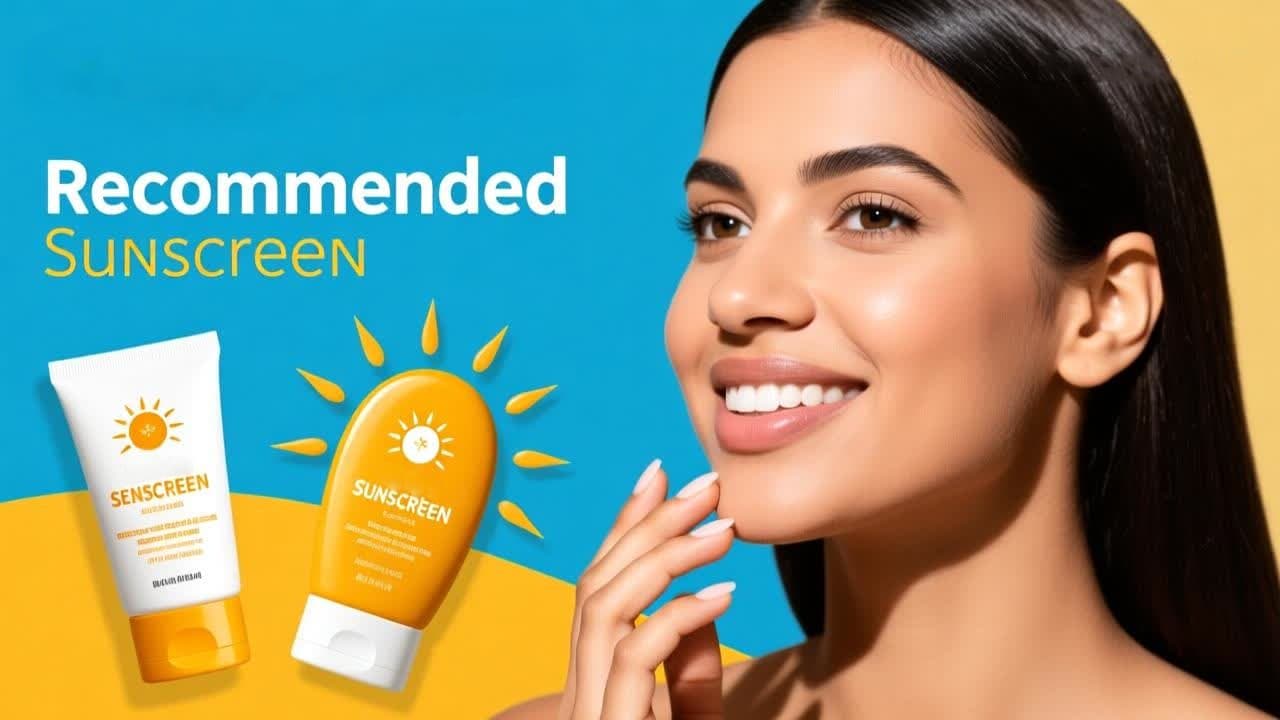
Dr. Ankit Mehra
Published on November 14, 2025
Dermatologist-Recommended Sunscreens for Indian Skin
In my practice in Ajmer, one question I hear every single day is, 'Doctor, which sunscreen is best for me?' As an Indian dermatologist, I understand our unique skin needs—the tendency towards pigmentation, the challenge of oily skin in this humid climate, and the constant battle against the strong Indian sun. I am Dr. Ankit Mehra, and today, I will simplify the process of choosing the right sunscreen for your Indian skin.
Think of sunscreen not as a cosmetic product, but as the most crucial part of your skincare—your primary shield against aging, dark spots, and skin damage.
What's in this article?
Why is Sunscreen Non-Negotiable for Indian Skin?
Our skin has more melanin, which offers some natural protection, but it is not enough. The intense UVA and UVB rays in our climate are the main cause of:
- • Tanning and Pigmentation: The most common complaint I see.
- • Premature Aging: Wrinkles, fine lines, and loss of elasticity.
- • Worsening of Melasma and PIH (Post-Inflammatory Hyperpigmentation).
- • Increased Risk of Skin Cancer.
What to Look for in a Sunscreen
Don't just pick any bottle off the shelf. Look for these three key features.
1. Broad-Spectrum Protection
This is the most important term. Broad-spectrum means the sunscreen protects from both UVA (aging rays) and UVB (burning rays). In India, look for a high PA++++ rating, which indicates the best UVA protection.
2. The Right SPF
For daily use in India, SPF 30 to 50 is ideal. SPF 30 blocks about 97% of UVB rays, while SPF 50 blocks about 98%. There is no need to go for extremely high SPF (like 100) as the marginal benefit is negligible, and it can feel heavy and greasy.
3. Texture Matters: Gel, Lotion, or Cream?
- • Oily Skin: Choose gel-based, matte-finish, or water-based sunscreens. They are non-comedogenic (won't clog pores).
- • Dry Skin: Opt for lotions or creams that contain hydrating ingredients like Hyaluronic Acid or Ceramides.
- • Sensitive Skin: Mineral or Physical Sunscreens with Zinc Oxide or Titanium Dioxide are less likely to cause irritation.
My Top Sunscreen Recommendations
Based on what works well for my patients in our climate, here are some reliable categories and brands.
For Oily & Acne-Prone Skin
- • Neutrogena Ultra Sheer Dry-Touch Sunscreen: A classic. It gives a matte finish and feels light.
- • La Shield Sunscreen Gel: A dermatologist-favorite, especially the Mineral one. It's non-greasy and very effective.
- • Aqualogica Glow+ Dewy Sunscreen: A good hydrating yet lightweight option that doesn't feel heavy.
For Dry & Sensitive Skin
- • Blynds Emulgel: A fantastic pharmacy product that is hypoallergenic and great for sensitive skin.
- • Re'equil Ultra Matte Dry Touch Sunscreen: Though matte, it works well for dry skin types that need strong sun protection without irritation.
- • The Derma Co. Hyaluronic Sunscreen Aqua Gel: Provides hydration along with sun protection.
For Combination Skin
- • Lotus Herbals Safe Sun UV Screen: A wide range of textures are available to suit different preferences.
- • Fixderma Shadow SPF 50+ Gel: A lightweight gel that works for most skin types without feeling sticky.
For Sensitive Skin & Children (Mineral Sunscreens)
- • QV Face Moisturising Day Cream: A gentle, mineral-based option.
- • IPCA Acne-UV Gel SPF 50: While a chemical sunscreen, it is specifically formulated for sensitive, acne-prone skin and is a staple in many dermatology clinics.
Common Sunscreen Mistakes to Avoid
- Using Too Little: You need a full teaspoon for your face and neck. Less than that drastically reduces protection.
- Skipping Reapplication: Sunscreen degrades. Reapply every 3-4 hours, and immediately after swimming or heavy sweating.
- Using Expired Sunscreen: Check the expiration date. An old sunscreen loses its effectiveness.
- Using Sunscreen Only Outdoors: UVA rays can penetrate windows. Make sunscreen a part of your morning routine, even if you are indoors.
My Final Prescription
The best sunscreen is the one you will use happily every single day. Don't be afraid to try a few to find the texture and finish you love.
If you have specific skin conditions like melasma, extreme sensitivity, or active acne, a personalized recommendation is always best. Please book a consultation with me, and we can find your perfect sun shield together.
Protect your skin, preserve its health,
Dr. Ankit Mehra, MDSkin and Hair Specialist, Ajmer
Disclaimer: This is general information, not medical advice. Please see a skin doctor for personal advice. Product mentions are based on general efficacy and are not sponsored endorsements.
To book an appointment:
- • 📞 96970 41111
- • 🌐 https://drankitmehra.com/
